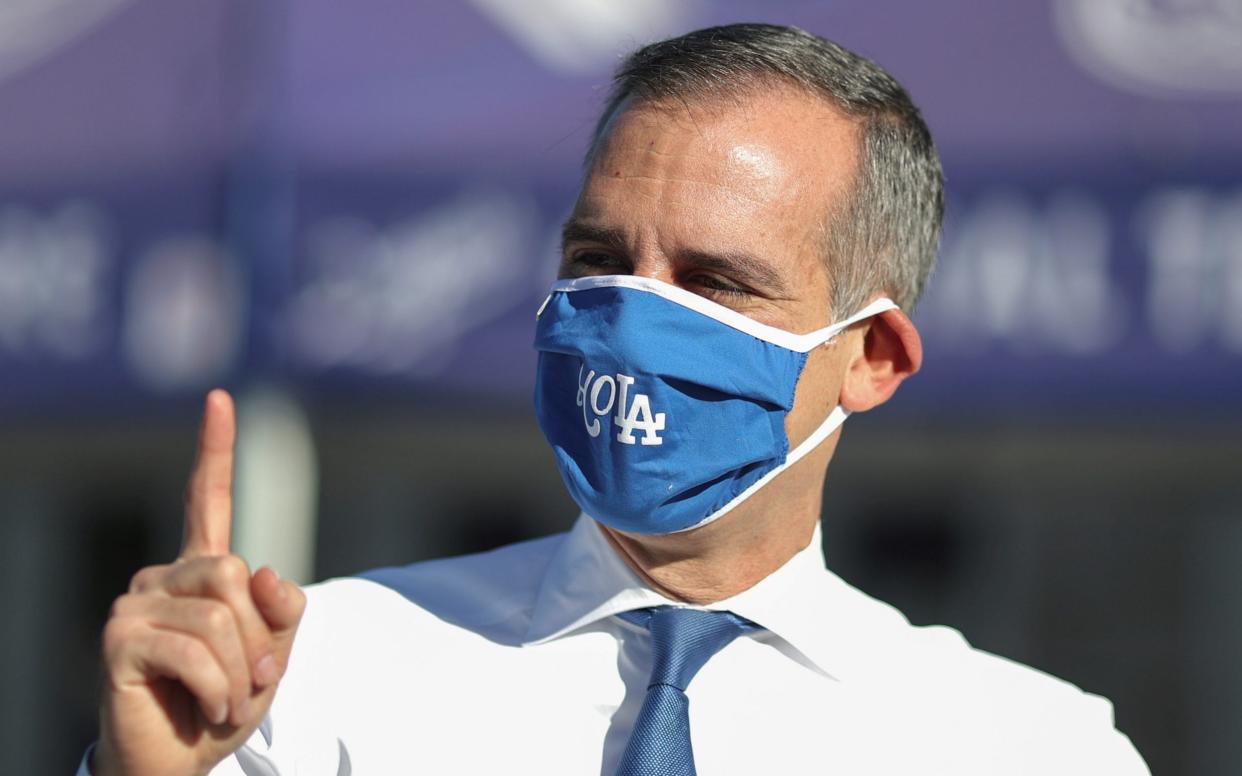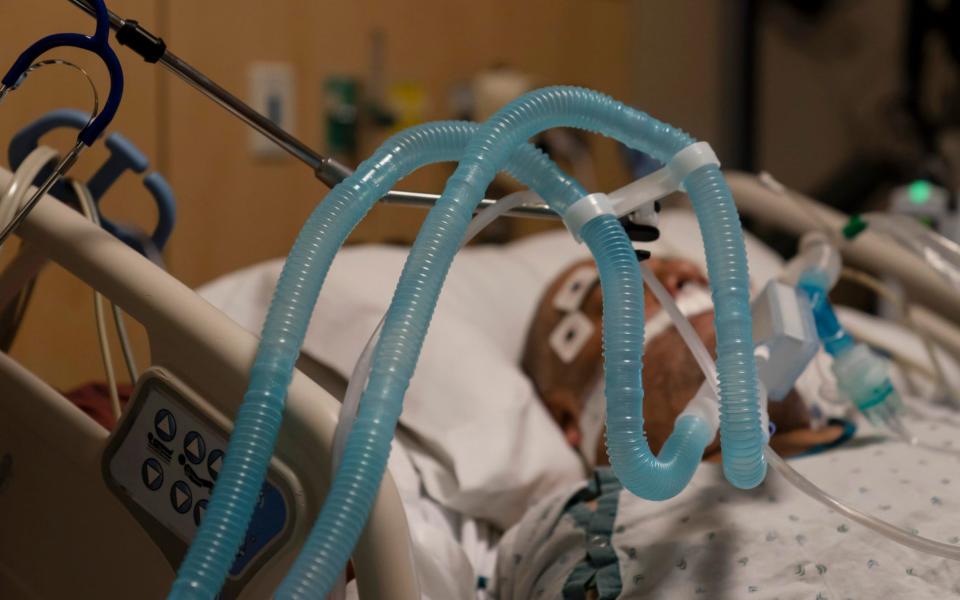Los Angeles enters new lockdown as coronavirus cases surge

Los Angeles' four million residents were urged to stay at home with the mayor, Eric Garcetti, warning that the city was approaching a “devastating tipping point”.
New restrictions were introduced amid fears that hospitals could be overwhelmed by the dramatic surge in coronavirus infections.
“My message couldn’t be simpler: It’s time to hunker down,” Mr Garcetti said on Wednesday. “It’s time to cancel everything. And if it isn’t essential, don’t do it.”
“Don’t meet up with others outside your household. Don’t host a gathering, don’t attend a gathering and follow our targeted safer-at-home order, if you’re able to stay home, stay at home. Just be smart and stay apart.”
The order bans all travel, whether on foot, by car or on public transport - however, there is a raft of exemptions for individuals involved in "essential activities"
These activities include health workers, grocery stores, petrol stations, journalism, education and undertakers.
Shops remain open, but are only allowed to operate at 20 per cent capacity. Barbers are still allowed to offer men haircuts, but shaving is forbidden.
While gatherings of more than one household are also banned, other activities are still permitted including golf and tennis. Public swimming pools have been closed, but the city's beaches remain open for swimming, surfing, running and walking.
Similar restrictions are being imposed in Los Angeles County - which also includes the satellite towns of Anaheim and Long Beach. It has reported more infections than any other county in the entire US with 408,396 confirmed cases and 7,700 deaths.
Late last month the county imposed a three-week ban on dining in restaurants, bars, wineries and breweries.
Similar restrictions could be introduced across the state as a whole with the governor, Gavin Newsom, reportedly drawing up plans for shutdown as draconian as was introduced in the spring.
He is under pressure to act amid fears that the state's coronavirus death toll, which is already approaching 20,000 could double by the end of the winter.

The number of deaths and new coronavirus cases continues to surge. According to the New York Times, 2,777 people died in the US on Wednesday - setting a daily record - and more than 100,000 people were admitted to hospital.
Robert Redfield, the head the Centers for Disease Control and Preventions, was pessimistic when he spoke to business leaders on Wednesday.
“I actually believe they’re going to be the most difficult time in the public health history of this nation,” he said.
However, according to the Washington Post, secretary of state, Mike Pompeo is pressing ahead with a series of indoor parties over the next few weeks - with as many as 900 invitations having been sent out for an event due to be held on December 15.
Donald Trump, meanwhile. is reported to have carpeted Food and Drug Administration Commissioner Stephen Hahn over the failure of the US to approve a vaccine ahead of the UK.
Amid fears that Americans will be reluctant to be inoculated, three former presidents Bill Clinton, George Bush and Barack Obama have volunteered to be vaccinated on camera to promote public confidence.
According to one study last month, only 46 per cent of Americans would be willing to take the vaccine as soon as it is available.
"If Anthony Fauci tells me this vaccine is safe, and can vaccinate, you know, immunise you from getting Covid, absolutely, I'm going to take it," Mr Obama said in a radio interview.
Similar sentiments were expressed by spokesmen for Mr Bush and Mr Clinton.
Meanwhile, Donald Trump said he would be willing to sign a coronavirus relief package if Democrats and Republicans reach an agreement.
"I want it to happen, and I believe they're getting very close to a deal," he said amid reports that a bipartisan team from both houses had drawn up proposals for a $908 billion injection into the economy.
The potential deal comes after months of deadlock between the parties over how much any package should cost with the Republicans pushing for far less to be spent on relief than their Democrat counterparts.

